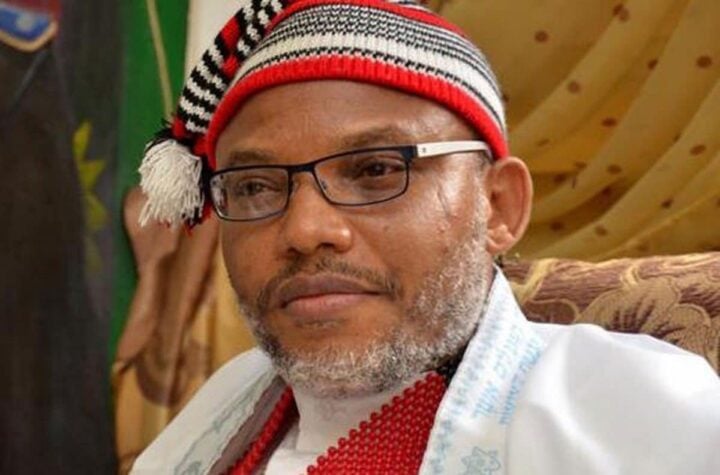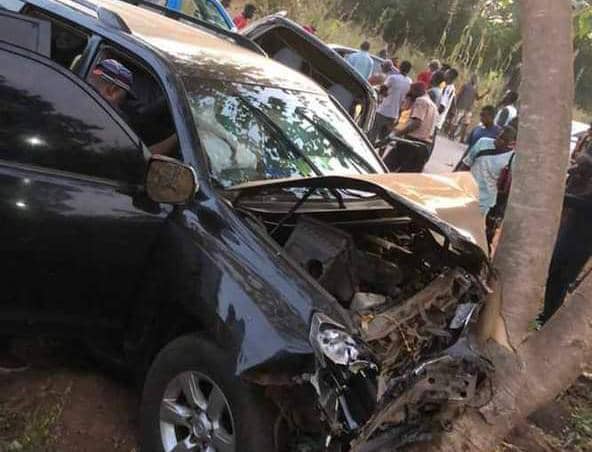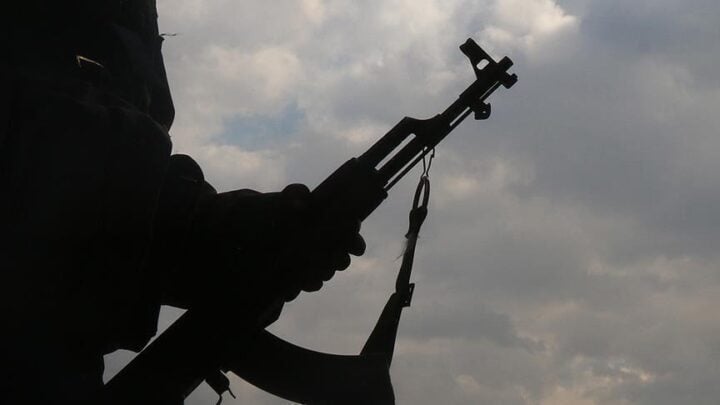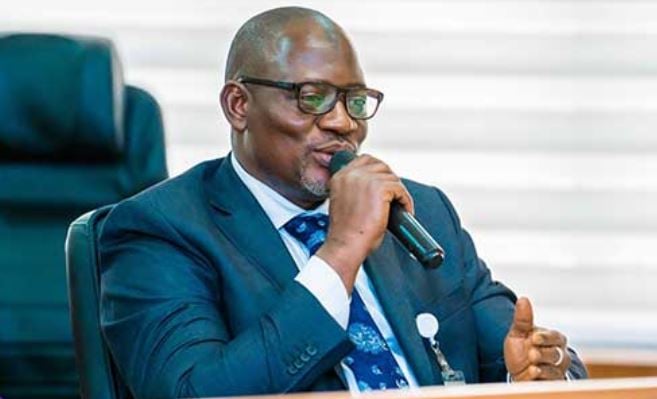Nnamdi Kanu, leader of the Indigenous Peoples of Biafra (IPOB), has filed a suit against the Department of State Services (DSS) alleging violation of his fundamental human rights.
Speaking with journalists on Monday, Maxwell Opara, one of Kanu’s lawyers, alleged that “a medical doctor engaged by the DSS has extracted Nnamdi Kanu’s blood samples over 21 times”.
“Nnamdi Kanu said his demand for the security agency to grant him access to his medical record was repeatedly refused,” Opara stated.
Opara also said his client complained to him that he suspected the doctor who extracted his blood to be a “quack”.
Advertisement
The lawyer said despite a subsisting order of court directing the secret service to allow his client change his clothes and practise his Jewish faith, the DSS has failed to obey the court order.
In the suit marked FHC/ABJ/CS/1585/21 and filed before a federal high court in Abuja, the DSS, its director-general, Yusuf Bichi, and the attorney-general of the federation are listed as respondents.
Emmanuel, Kanu’s younger brother, in an affidavit supporting the suit, stated that “the respondents have deprived the applicant access to facility and material to practise his faith and ultimately prevented the applicant from praying and/or practising his faith, and the aforesaid constitute a breach of the applicant’s right to practise his religion”.
Advertisement
“The respondents prevented the applicant from having access to a medical practitioner and legal practitioner of his choice,” the affidavit reads.
“The respondent subjected the applicant to solitary confinement which is a form of mental and physical torture and as such subjects the applicant to inhuman and degrading treatment and in turn constitutes a violation of Section 34(1)(a) Constitution of the Federal Republic of Nigeria 1999 as amended and Article 5 of the African Charter on Human and People Rights (Ratification and enforcement) Act Cap A9 Vol. 1 LFN.
“The Applicant’s right not to be subjected to inhuman and degrading treatment and torture/humiliation is enshrined in Section 34(1)(a) Constitution of the Federal Republic of Nigeria 1999 as amended and Article 5 of the African Charter on Human and People Rights (Ratification and enforcement) Act Cap A9 Vol. 1 LFN.
“Order (ii) Rule (i) of the Fundamental Rights (Enforcement Procedure) Rules 209 empowers any person who alleges that any of the fundamental rights to which he is entitled to is being, has been, or is likely to be infringed upon to apply to the court for a redress.
Advertisement
“The respondents have no justification to have subjected the applicant to indignity, humiliation, mental torture and inhuman and degrading treatment.”
The suit is among other things, seeking, “an order directing the respondents to immediately allow the applicant access to facility and material for the practice of his religion”.
He is also asking for an order “directing the respondents to immediately allow the applicant to appoint an independent medical practitioner of his choice from a certified government hospital to review the applicant’s medical files”.
Also, the IPOB leader is asking to court to order that he has access to “a medical practitioner of his choice and a legal practitioner of his choice”, as well as that he be “immediately removed” from solitary confinement.
Advertisement
Add a comment





